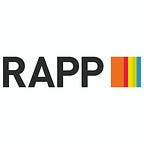Where we don’t hear kind words or see kind actions, we need to respond with kindness.
Kindness is my superpower and it very much defines who I am. It is not about being nice and it is not a ‘nice to have’. It is an inner strength which helps me deal with everyday life and keeps me balanced. At work I use kindness to be a leader and to collaborate across the agency to deliver the best possible work. I am not alone in my thinking and we all need to think how we can make kindness our superpower.
The past year has taught us a lot about kindness and the sacrifices people will make to help others. Kindness is unconditional but at the same time it gives you back so much more in karma. The Mental Health Foundation found that 63% of adults felt a positive impact on their mental health when they were kind to others. They felt more happy, optimistic and satisfied in life.
Karma isn’t limited to mental health. There is lots of evidence to support the physiological impact of kindness. A study in the US found simple acts such as buying coffee for a stranger, resulted in lower activity of leukocyte genes that are related to inflammation. We all need to reduce inflammation as it has been linked cancer, heart disease, and diabetes. The impact of karma is measurable, and the evidence shows why we all should care about being kind.
The non-negotiable need for kindness has gathered momentum during the pandemic. A BritainThinks Survey found that only 12% want to return to how things were. The survey found most of us want a kinder society that prioritises and supports people who have mental or physical health problems. I don’t think this momentum will disappear post-pandemic and it is critical for businesses to make kindness their superpower in order to succeed.
Companies that value kindness invest more in their people and are more successful because they have a happy workforce. A happy workforce is 12% more productive (University of Warwick) and will grow the value of the company. Salesforce consistently ranks as one of the best companies to work for and is known for its happy workforce. It is also exceptionally successful, reporting revenue of $5.82 billion in the latest quarter of 2020, up 20% from the same period in 2019. They are currently building software to help businesses bring workers back into the office and keep them happy, healthy and safe.
There are many amazing examples of companies who have been kind during the pandemic and have focused on giving back whist being unable to generate revenue. Premier Inn has given space to local hospices. Restaurants have made meals for both NHS Staff and the local community. This has supported the staff who have been furloughed by giving them a purpose. Supermarkets that have been able to continue to operate have also given back. Morrisons changed its brand purpose to ‘feed the nation’ and has lived up to this through lots of different initiatives to support both its customers and employees. Ocado opened its ‘Rapid Router’ programme as free education resource to teach children to code at home.
Last week everyone at RAPP was given the opportunity to nominate someone they wanted to be kind to, for any reason, personal or work. To be able to give that person a virtual hug in the form of something nice, a bottle of wine or a bunch of flowers. A simple act to show how much we value kindness and to create a sense of karma across the agency. I also talked to the agency about how kindness is my superpower and in return received kind words back.
To continue the acceleration of kindness, we need to make kindness our superpower and for it to influence the way we live and work. We need to ask ourselves if we are doing the right thing by others. Where we don’t hear kind words or see kind actions, we need to respond with kindness. Kindness really is a superpower we all need and by being kind we will all receive the resulting karma of living/working in a happier, healthier and thriving society.
Kate Amos is head of experience sciences at RAPP
This article was originally published in Little Black Book, March 2021.
